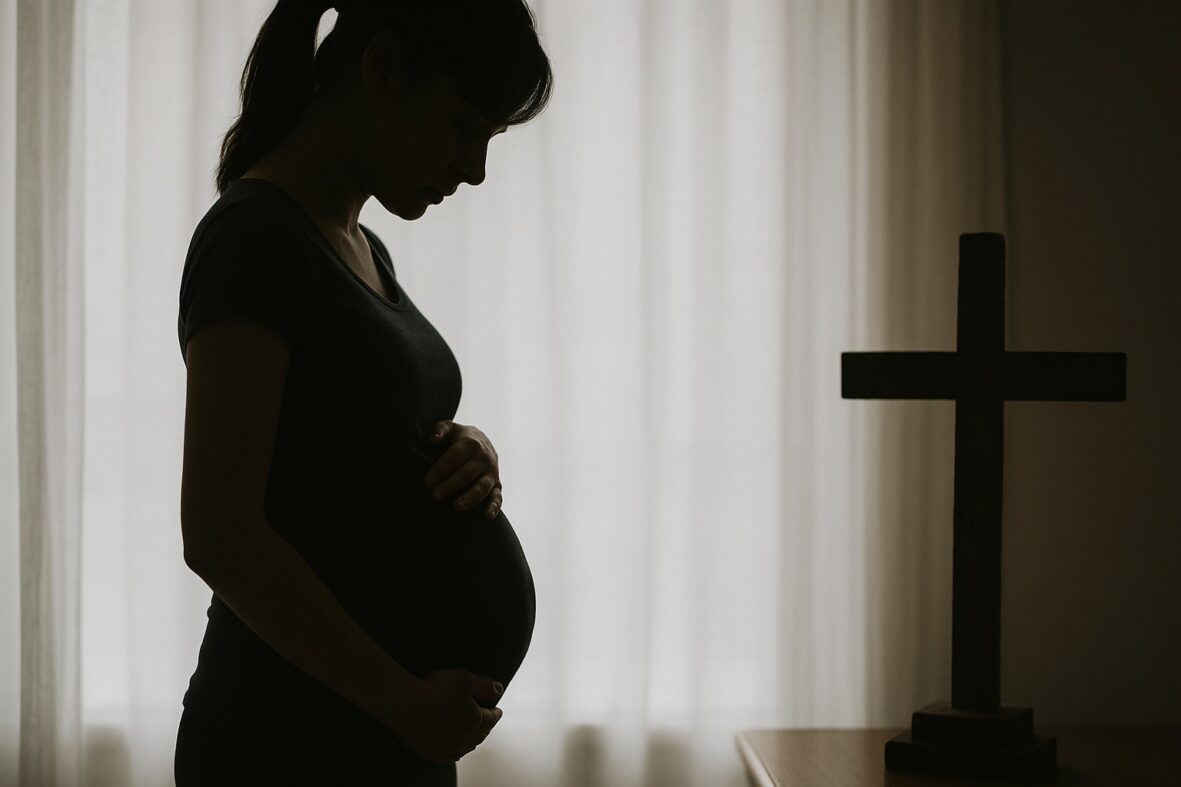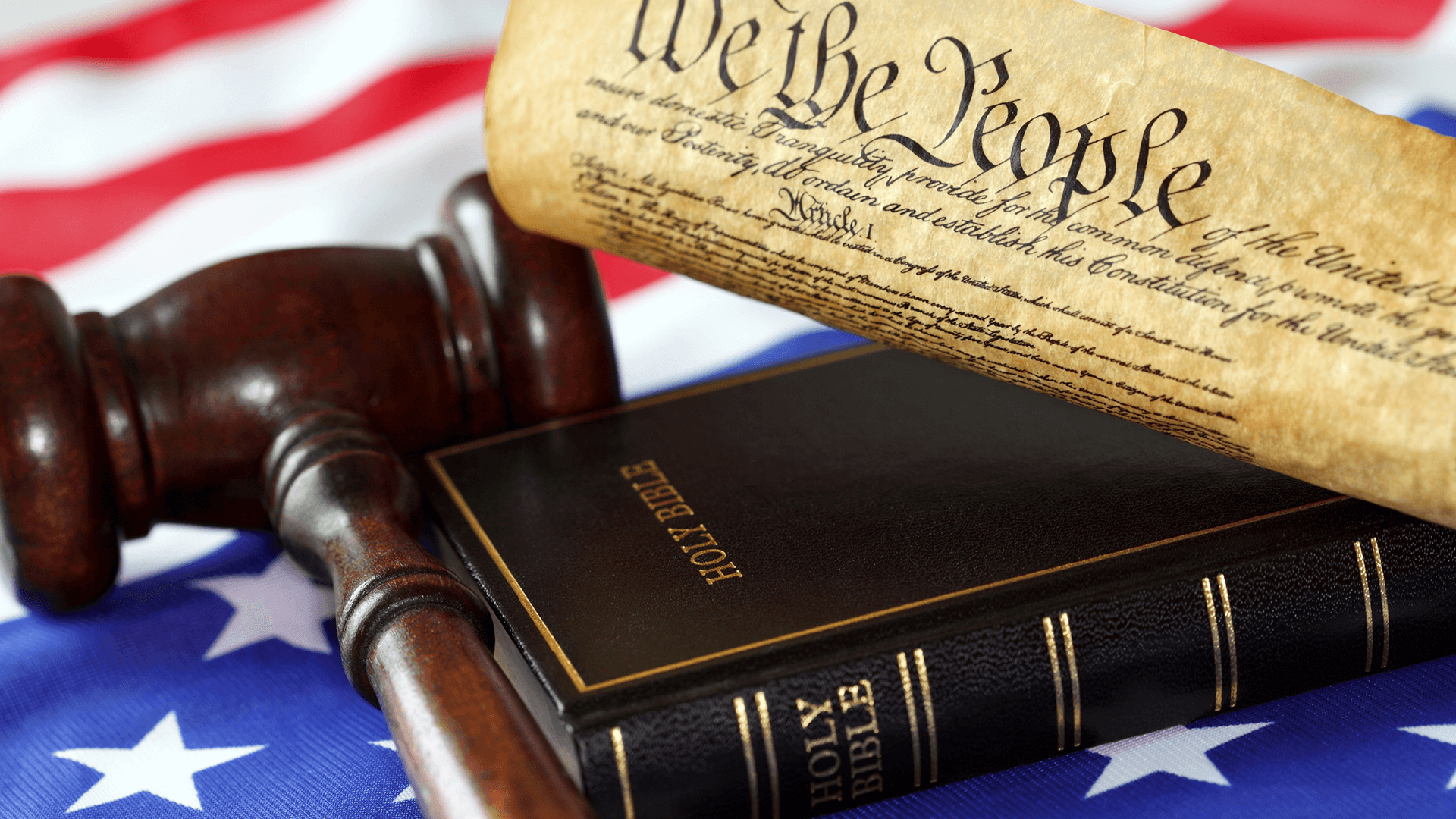Part 1 of Life and the Sanctity of Life
Scripture: Psalm 139:13–14
Embracing a Culture of Life: A Biblical Worldview Perspective
Psalm 139:13–14 (LSB) exalts the Creator’s intimate care in forming life: “For You formed my inward parts; You wove me in my mother’s womb. I will give thanks to You, for I am fearfully and wonderfully made”. These poetic lines capture the sanctity of unborn life in God’s eyes. Yet today, the sanctity of life in the womb is fiercely contested. In a culture where elective abortion has ended over 1 million pregnancies in the U.S. in 2023 alone , Christians must clearly understand what Scripture teaches about unborn life. What does the Bible say about abortion? How can we lovingly defend the unborn and respond to common objections? In this opening article, we will build a biblical case for the personhood of the unborn, address cultural arguments with apologetic rigor, and examine trends and data on abortion to inform our engagement.
Biblical and Theological Framework: The Unborn Are Known by God
Created in God’s Image from Conception: The Bible teaches that human life, from its earliest stage, bears the imago Dei (image of God). In Genesis 1:27, God creates mankind “in His own image”, imparting inherent dignity to every human being. This truth undergirds the prohibition of shedding innocent blood: “Whoever sheds man’s blood, by man his blood shall be shed, For in the image of God He made man” (Gen 9:6, LSB). Because every person is God’s image-bearer, the willful taking of innocent human life is a grave sin . This includes unborn humans. The personhood of the unborn child is affirmed throughout Scripture:
- Known and consecrated by God before birth: The Lord told Jeremiah, “Before I formed you in the womb I knew you, and before you were born I consecrated you” (Jer 1:5, LSB). God’s plan and personal care extend to the unborn, treating them as known individuals, not impersonal tissue. Similarly, Isaiah 49:1 and Galatians 1:15 speak of God calling His servants from the womb.
- Described as children in the womb: Luke’s Gospel recounts the prenatal meeting of John the Baptist and Jesus. When the pregnant Elizabeth sees Mary, she exclaims, “the baby leaped in my womb for joy” (Luke 1:44, LSB). The Greek word βρέφος (brephos) used for “baby” refers to a child – the same term used for infant Jesus in Luke 2:12. Scripture makes no qualitative distinction between a baby in utero and one already born; both are fully human, responsive to God.
- Fearfully and wonderfully made by God: In Psalm 139, David celebrates God’s hand in his prenatal development: “You wove me in my mother’s womb… I am fearfully and wonderfully made” (Ps 139:13–14). Notably, David uses personal pronouns (“me”) to describe himself in the womb. The unborn David was “distinct in [his] personhood from the time [he] was conceived” . Far from being merely a disposable part of his mother’s body, he was a distinct person whom God was knitting together. The Bible consistently views the unborn as genuine human persons under God’s care.
- Protected by the same moral law: The Sixth Commandment, “You shall not murder” (Ex 20:13), applies to all innocent human life. Exodus 21:22–25 contains a case law about men fighting and injuring a pregnant woman, causing her to give birth prematurely. If harm came to the child, the law called for proportional penalty (life for life), indicating the unborn’s life was to be protected as vigorously as any other. While interpretations of this passage vary, many scholars see it as evidence that biblical law valued the fetus as a life worthy of justice.
Early Church Witness: Christians from the earliest centuries understood Scripture to condemn abortion alongside infanticide. The Didache (c. A.D. 100) explicitly commanded, “Do not murder a child by abortion, nor kill it at birth.”Likewise, the Epistle of Barnabas (2nd century) taught, “You shall not abort a child nor, again, destroy it after it is born.”. In the Greco-Roman world, killing unwanted offspring (born or unborn) was commonplace, but the Church’s countercultural stance was clear: all human life is sacred from conception. This unbroken Christian ethic flows from the Bible’s teachings and the example of Christ, who welcomed society’s weakest. Every baby in the womb is, as it were, a “neighbor” we are called to love (cf. Luke 10:29–37).
Scientific Support for Biblical Truth: While our focus is Scripture, it’s notable that science affirms the Bible’s view of life’s beginning. At conception, a new human organism with unique DNA comes into existence. The unborn child’s heart starts beating by about 6 weeks, brain waves are detectable by 8–10 weeks, and by the end of the first trimester the baby has arms, legs, fingers, toes, and facial features. Modern embryology agrees there is a continuous life from conception to birth and beyond. Thus, biblical revelation and scientific observation both testify that the unborn is a human life – a tiny image-bearer of God.
Cultural Objections and Apologetic Responses
Despite the biblical clarity, many cultural voices raise objections to the pro-life position. As Carl Trueman observes, we live in an age that “prize[s] our individual autonomy and [throws] off anything that might curtail or impinge upon it”, a mindset that “makes us feel like gods.” Under the ethos of expressive individualism, anything that limits personal choice – including an inconvenient pregnancy – is deemed oppressive . Christians engaging in abortion debates will encounter heartfelt questions and challenges. We must respond with both theological clarity and compassion. Here are several common objections and ways to answer them faithfully:
- “The Bible doesn’t mention abortion, so how can it be wrong?” It’s true the Bible never uses the word “abortion.” However, the absence of an explicit mention does not mean moral permission. The Bible also doesn’t mention internet pornography or insider trading, yet we apply biblical principles to judge those as sin. In the case of abortion, Scripture’s principles clearly cover it: the unborn are human beings made in God’s image, and shedding innocent blood is forbidden. Biblical commands against murder (Ex 20:13) and warnings against harming “little ones” (cf. Matt 18:10) apply by extension to the unborn. Early Christians understood this, unanimously condemning abortion as a form of murder. As theologian Wayne Grudem notes, “God absolutely forbids human beings to murder one another” because we are in His image – and an unborn child is not excluded from this command. The silence of specific terminology is overcome by the resounding voice of biblical doctrine: abortion, the intentional killing of an unborn child, violates the sanctity of life revealed in Scripture.
- “The fetus is just a part of the woman’s body – not a separate person.”It is true that a baby in the womb is physically dependent on his or her mother, but dependence does not equal non-personhood. From a biblical standpoint, we’ve seen that the unborn child is treated as a distinct person (Psalm 139’s “You knitted me together”). Luke 1:41–44 portrays John and Jesus as individual persons interacting while still in utero. Even the language of modern obstetrics calls the unborn a “baby.” Biologically, the fetus has unique DNA, often a different blood type, and half the time a different sex from the mother – hardly just an appendix or organ of her body. So, the unborn is a distinct human, merely at an earlier stage of the human lifecycle. As Grudem observes, David in Psalm 51:5 speaks of himself as having a sin nature from conception, implying his personal existence began at conception. We should gently help people see that location and level of development do not determine humanity. A newborn is no less human for being smaller and more dependent than a toddler; likewise, a fetus is no less human for residing in the womb and relying on the mother. In God’s view, “from the moment of conception” the unborn child is a distinct person . Therefore, we must not discriminate human worth based on age, size, or autonomy.
- “My body, my choice – a woman has the right to control her own body.”We empathize with the desire for personal autonomy and the fear many women have when facing an unplanned pregnancy. A Christian worldview certainly upholds individual dignity and freedom – but always within the moral order established by God. The slogan “my body, my choice” overlooks the reality that pregnancy involves two bodies, not one. The unborn child’s body (with unique DNA and developing organs) is present within the mother’s body. As such, there are two lives and hence two sets of rights to consider. Biblically, our rights over our bodies are not absolute; we are stewards of God’s gift of life. Paul asks, “Do you not know that … you are not your own? For you have been bought with a price” (1 Cor 6:19–20). While that verse applies to sexual ethics, the principle is that our bodies ultimately belong to God, and we must honor Him with them. No one has the “right” to take an innocent life, even if that life is within their own body. We should acknowledge a woman’s right to make choices about her body (health care, etc.), yet lovingly point out that when pregnant, the choice is no longer merely about her body but also about the baby’s body and life. A compassionate society will offer a pregnant mother support rather than the “solution” of violence against her child. As the Colson Center’s John Stonestreet has said, “we must push back as much on the culture of death at the end of life as we have at the beginning of life” – and that means standing against the taking of life in the womb while providing every support for the mother.
- “What about cases of rape, incest, or danger to the mother’s life?”These are undoubtedly some of the hardest situations. Christians should approach them with great compassion and nuance. Rape and incest are horrific violations that cause deep trauma; a woman in this situation deserves our care, counseling, and support. Only a tiny fraction of abortions result from these cases (estimates typically under 1–3%), yet they loom large in public debate. Even here, we must ask: Is the unborn child any less human or less innocent because of the manner of conception? The circumstances of conception do not change the essence of the baby as an image-bearer. Responding to evil with another tragic act (abortion) cannot fully heal the trauma of rape. Many women who have carried a pregnancy from rape to term testify that the child became a source of redemption and joy rather than an extended horror. That said, we must never minimize how difficult this is, and the church should be ready to surround such a mother with love (even offering adoption if she cannot bear to raise the child). In cases of risk to the mother’s life, pro-life ethicists have long allowed treatments that may unintentionally result in the loss of the baby (for example, treatment for an ectopic pregnancy). In these rare cases, the intent is not to kill the child but to save the mother – and sadly, the baby cannot survive. Ethically and biblically, there is a difference between tragically losing a child and intentionally killing a child. We affirm that both lives matter to God. If a true life-threatening emergency arises, most Christians hold that it can be morally licit to prioritize saving the mother (since if she dies, the baby would likely die as well). Fortunately, advances in medicine have made such scenarios exceedingly uncommon. Overall, these hard cases do not undermine the fundamental principle that unborn life is precious; rather, they call us to greater compassion and creativity in upholding life in the midst of crisis.
- “Abortion is a personal choice; you shouldn’t force your religious beliefs on others.”In a pluralistic society, this is a frequent challenge: Why impose a “Christian” view of life on everyone? In reply, we can clarify that the value of human life is not merely a sectarian religious doctrine – it is a truth accessible to all, grounded in natural law and human rights. As Christian apologist Neil Shenvi observes, worldview differences are at play: secular critical theory frames moral questions in terms of power and oppression, but the Christian worldview provides a coherent basis for human dignity. The pro-life position is not about controlling women; it is about protecting fundamental human rights – the most fundamental being the right to life. Even apart from the Bible, reason and conscience tell us that intentionally killing innocent humans is wrong. Society “imposes” moral laws all the time (against theft, abuse, etc.) not to oppress people but to protect the vulnerable. From our perspective, abortion is a grave injustice – a violation of an unborn person’s right to life. As such, it is comparable to other injustices that the law addresses. Moreover, many non-Christians agree that unborn life deserves protection (there are secular pro-life groups, and scientific arguments for life’s beginning at conception). We can point out that truth is not determined by personal preference. If the pro-life claim is true, then it remains true even for someone who doesn’t share our faith. Of course, we should winsomely present the biblical worldview as the most compelling explanation for human value. Christianity teaches that all humans, of every age, race, and gender, are made in God’s image and worthy of love – a powerful foundation for universal human rights. In contrast, a secular utilitarian ethic may reduce humans to “wanted” or “unwanted.” Gently invite your interlocutor to consider which worldview truly promotes human flourishing and justice for all, including the unborn.
Current Abortion Statistics and Trends
Being equipped for pro-life advocacy today also involves understanding the facts about abortion’s prevalence and history. How widespread is abortion, and are things getting better or worse? Data can help burst misconceptions (for example, the idea that abortion is rare or purely a “back-alley” occurrence). Here is a brief overview, with recent statistics:
- In the United States: After the Roe v. Wade decision in 1973, abortion rates rose dramatically. The annual number of abortions peaked around 1.6 million in 1990. Since the 1990s, abortions had generally been declining, reaching around 930,000 by 2020 (according to Guttmacher Institute data) . This decline corresponded with lower abortion rates (abortions per 1,000 women of childbearing age) dropping by roughly 50% from the early 1980s to the late 2010s . However, recent years have seen slight upticks. In 2023, an estimated 1,026,700 abortions were performed in the U.S., the highest number in over a decade . This suggests that even after the Supreme Court’s 2022 Dobbs decision (which overturned Roe and returned abortion law to the states), abortions did not disappear – many states continued or even expanded abortion access, and some women traveled out-of-state or obtained abortion pills. The battle to protect unborn life in America is far from over. Still, on a per-capita basis, the abortion rate today (around 14 per 1,000 women in 2020) is significantly lower than it was in 1980 (29 per 1,000) , indicating that pro-life efforts, changing attitudes, better contraception, and other factors have had an impact over time. Historical trend: rise in 1970s–80s, gradual decline after 1990, with recent modest increases.
- Global perspective: Abortion is a worldwide tragedy. According to the World Health Organization, about 73 million abortions occur globally each year . This means on average about 200,000 unborn lives are ended every single day around the world. Abortion rates vary by country and region, often higher where contraceptive access is poor or where abortion is used as a primary means of birth control. Some nations (including most of Europe, Canada, China, etc.) have very permissive abortion laws, while others (like many in Latin America and Africa) have more protective laws but may still have significant illegal or clandestine abortions. Heartbreakingly, certain cultures practice sex-selective abortion, disproportionately killing female babies. In countries like India and China this has skewed gender ratios. From a Christian worldview, these global realities call for both advocacy and gospel mission – addressing not only laws but the underlying cultural, economic, and spiritual issues that lead to such loss of life.
- Public opinion and cultural shifts: In the U.S., public opinion on abortion is deeply divided. Many Americans take a middle position – uneasy with abortion but supportive of it in some cases. After Dobbs (2022), some states banned or restricted abortion, while others entrenched it. We’ve also observed a hardening among abortion advocates: what was once spoken of as a “tragic necessity” is now often celebrated as a positive good. Carl Trueman notes the “exultant nature” of today’s abortion advocacy – a shift from “safe, legal, and rare” to a celebratory attitude . This reveals a deeper cultural ethos: “The abortion debate is not driven by mere disenchantment… It is driven by the desire for desecration – to destroy what is sacred.” These strong words underscore that, for some, abortion has become almost a sacrament of personal autonomy, a defiant assertion of self-will. Understanding this helps Christians see that our task is not only to argue about biology but to confront a worldview that idolizes choice unfettered by moral truth.
- Demographics and reasons: Most abortions are obtained by women in their 20s. Contrary to stereotypes, a majority of abortion-seekers already have one or more children, and cite financial or personal constraints as reasons. In one large study, the top reasons women chose abortion were: “having a baby would interfere with education, work or ability to care for dependents” (74%); “can’t afford a baby now” (73%); and “not wanting to be a single mother/relationship problems” (48%) . By contrast, medical emergencies or fetal anomalies account for a small minority of abortions, and cases of rape/incest are even rarer (often estimated around 1% or less). This data reinforces that the vast majority of abortions are done for socio-economic or personal lifestyle reasons, not dire medical necessities . Understanding this can guide our response: we need to offer hope and tangible support that addresses those financial, educational, and relational pressures so fewer women feel abortion is their only option.
In sum, the cultural landscape on abortion is complex. But one thing is clear: abortion remains a pressing frontline issue for Christian ethics and apologetics. Millions of lives are at stake, and many of our neighbors are confused about the moral questions involved. We must be prepared to communicate biblical truth about the unborn in a compelling, gracious way, armed with both Scripture and accurate information.
Practical Application: Standing for Life
Knowing the truth is one thing; living it out is another. How can Christians put into practice a biblical commitment to the sanctity of unborn life? Here are some concrete steps for faithful discipleship and engagement:
- Study and Share Scripture’s Teaching: Ground yourself in the Bible’s pro-life foundation. Memorize key verses (like Psalm 139:13–16, Jeremiah 1:5, Luke 1:41–44) and understand the theology of the image of God. This will give you confidence to articulate the biblical view in conversations. Be ready to gently share, for instance, how God’s Word affirms the personhood of the unborn. When fellow believers seem unsure, lead them to the Scriptures. In our churches, we should teach on these passages so that congregations grasp that pro-life is not a political posture but a deeply biblical conviction.
- Engage in Respectful Dialogue: In personal interactions or public forums, speak the truth in love (Eph 4:15). Avoid abrasive or condemning language. Listen to people’s concerns and questions about abortion. Often, someone’s support for abortion rights may stem from fear, personal trauma, or believing it’s the “compassionate” choice. By listening well, we can respond to the real heart issues. Practice answering common objections (like the ones above) so you can clarify misconceptions graciously. Remember, our goal is not to win arguments but to win people’s hearts to the truth. A thoughtful, empathetic pro-life Christian can shatter the caricature that we only care about rules and control. Let your gentleness, empathy for women, and concern for human dignity be evident.
- Support Mothers and Babies Tangibly: To consistently love unborn neighbors, we must also love their mothers. Get involved with or donate to pregnancy resource centers and maternity homes in your area. These ministries provide counseling, ultrasound services, baby supplies, and practical aid to women in crisis pregnancies. There are around 3,000 pro-life pregnancy centers in the U.S. offering free help to women – a network largely supported by Christian volunteers and donors. You could volunteer as a counselor, mentor a young mom, or participate in diaper drives. Such involvement powerfully undercuts the accusation that pro-lifers only care about babies until birth. In fact, pro-life pregnancy centers outnumber abortion clinics by a wide margin and provide invaluable support that even many secular observers quietly appreciate. (In 2019, Planned Parenthood – the largest U.S. abortion provider – had about 585 centers, whereas pregnancy help centers numbered in the thousands .) By actively supporting these efforts, Christians put hands and feet to their prayers.
- Advocate and Vote with Wisdom: Faithful discipleship in a democracy includes using our influence to protect life. This can mean advocating for pro-life legislation, supporting laws that restrict abortion (especially late-term abortions or those after a heartbeat is detectable), and ensuring there are protections for the most vulnerable. It also means opposing policies that expand abortion funding or access. When voting, Christians should make the sanctity of life a priority issue – not the only issue, but a weighty one. That said, we must engage the political process with integrity and hope, not despair or vitriol. We should seek to persuade our fellow citizens, not just coerce. For example, supporting measures that provide resources for pregnant women (healthcare, maternity leave, child tax credits, etc.) can build common ground and actually reduce perceived “need” for abortion. The end goal is not only changing laws but changing hearts so that abortion becomes unthinkable. As the Colson Center often urges, we want to make abortion both illegal and unthinkable.
- Pray for Change: Do not underestimate the power of prayer in the battle for life. Pray regularly for God to change hearts – for those considering abortion, for abortionists to have conversions (as many, like Abby Johnson, have), for our leaders to have courage to defend life, and for a cultural awakening to the value of each child. Many churches hold annual pro-life prayer vigils, or participate in movements like 40 Days for Life, which combine prayer with peaceful presence outside clinics. Such efforts have been credited with saving lives and closing abortion facilities. Ultimately, “we do not wrestle against flesh and blood” (Eph 6:12), so spiritual warfare through prayer is essential. Pray also for forgiveness and healing (as we will discuss in Part 3) for those scarred by abortion. God’s hand can guide us as we speak and act for life.
Closing Reflection
Defending the unborn is a demanding but sacred calling. In this article, we’ve seen that Scripture speaks with a unified voice: every human life, from the moment of conception, is fearfully and wonderfully made by God. No life is “accidental” or worthless in His sight. As Christians, we are called to speak up for those who cannot speak for themselves (Prov 31:8) – surely this includes the millions of voiceless unborn children. Our stance must combine resolute truth-telling with compassion and help for women in need. This is not about winning a culture war; it’s about being faithful to Jesus, who said, “Let the little children come to Me” (Mark 10:14).
The issue of abortion cannot be isolated from a broader ethic of life. In the next part of this series, we will build on the biblical foundation laid here and explore a holistic “womb to tomb” pro-life ethic. How should Christians consistently value life at every stage – not only before birth, but also in issues of poverty, disability, and end-of-life care? How do we answer the charge that we are only “pro-birth” and not truly pro-life? As we continue, remember that every person you encounter – from the unborn child to the elderly neighbor – is someone made in God’s image and someone Christ calls you to love. Affirming life in the womb is the beginning of a much larger narrative of upholding the sanctity of life in a culture that desperately needs the light of God’s truth.
Next → From Womb to Tomb: A Pro-Life Ethic for All of Life
View all of Life and the Sanctity of Life








